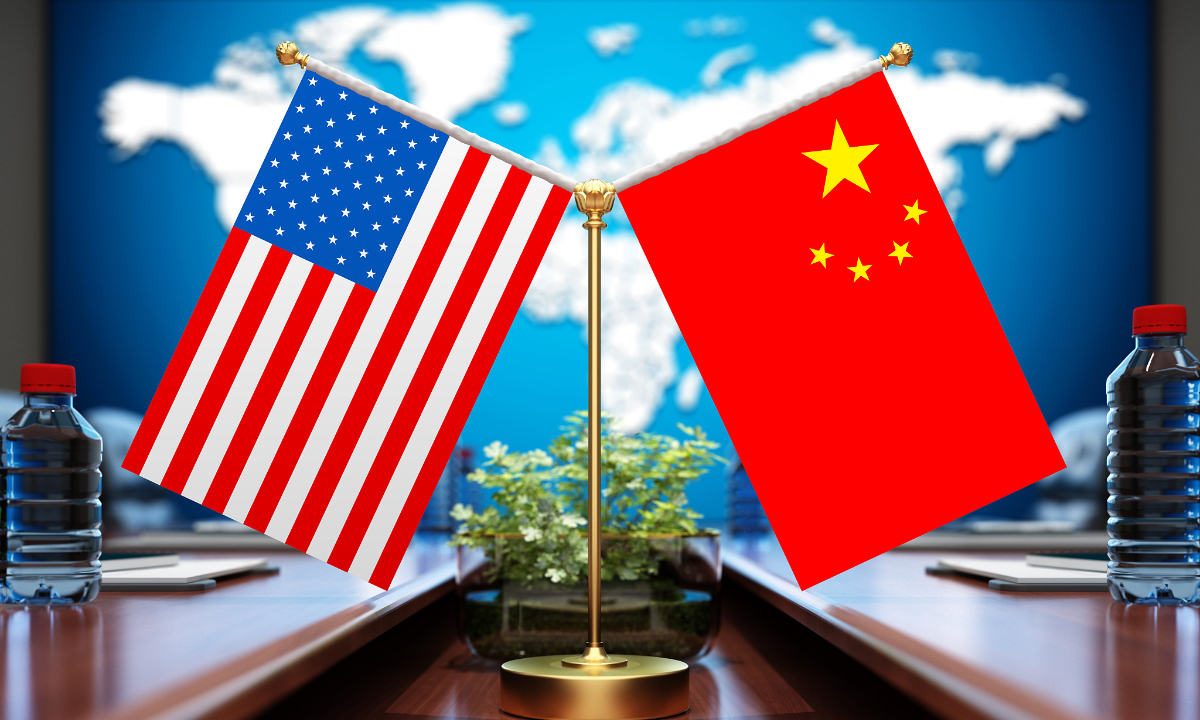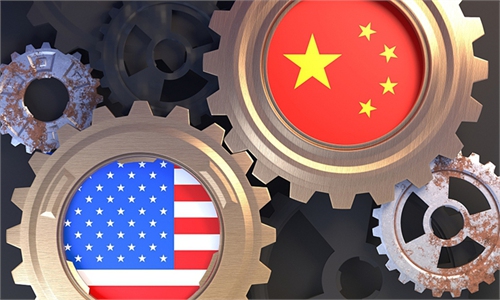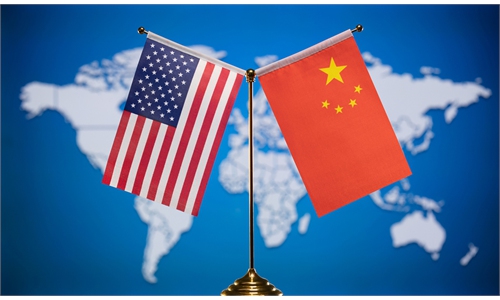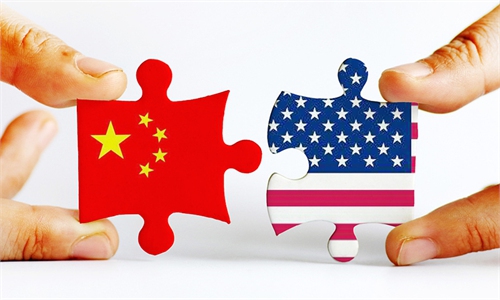China calls on Chinese, US firms to expand cooperation, help stabilize ties
Cooperation welcome, but crackdowns to draw firm response: experts

China US Photo:VCG
Chinese officials have called on Chinese and US businesses to expand cooperation and help stabilize bilateral ties, as US companies continue to express great interest in the Chinese market; however, Chinese officials are also firmly countering Washington's slander and crackdowns against China.
This is the current dynamic between China and the US in terms of economic and trade ties, and it will remain the situation for the foreseeable future, as Washington has adopted a "two-faced" approach in both seeking to stabilize ties as well as cracking down on China in areas where the US is lagging behind, experts said on Sunday.
On Friday, when addressing the annual appreciation dinner of the American Chamber of Commerce in China (AmCham China) in Beijing, Chinese Vice President Han Zheng called for business circles of the two countries to consolidate the foundation of friendship and mutual trust and expand areas of cooperation, the Xinhua News Agency reported on Saturday.
Han said that the Chinese economy has strong resilience, potential and vast space, and new drivers and advantages are still growing, China will unswervingly expand opening-up at a high level, and it welcomes more US companies to invest and develop in China.
Such a welcoming attitude has also been echoed by many Chinese officials amid increasing interactions between officials and businesses of the two countries in recent months. In the latest positive engagement, senior Chinese officials met with a visiting US delegation led by Suzanne P. Clark, president and CEO of the US Chamber of Commerce (USCC). During meetings, Chinese officials welcomed US businesses to invest and do business in China, while also firmly pushing back against "decoupling" and "small yard and high fence" approaches.
Many US business leaders have expressed opposition to economic decoupling. In a statement sent to the Global Times, the USCC said that in meetings with Chinese leaders during the trip, it "emphasized its longstanding support of mutually beneficial US-China commercial ties that do not compromise US national security interests" and "underscored that decoupling is not an option."
However, the USCC statement also contained claims that have been widely hyped by US officials and media outlets, including "heavy-handed commercial pressure tactics, digital protectionism and intellectual property theft."
The need for the US business community to strike a delicate balance between pursuing win-win cooperation and supporting the US government's efforts to protect "national security" underscored the chilling effect of Washington's efforts to contain China's rise, even though the US officially and publicly repeats pledges not to seek to decouple from or contain China, experts said.
"The 'two-faced' US approach when it comes to economic and trade ties with China has been very clear. It has always been seeking to cooperate in areas where it needs cooperation, while cracking down on China where it cannot compete," Gao Lingyun, an expert at the Chinese Academy of Social Sciences, told the Global Times on Sunday.
Such an approach has also been vividly displayed over the past few days. At the AmCham China dinner on Friday, US Ambassador to China Nicholas Burns said that "the [US] wants to keep trade going forward with China. We are not seeking to decouple these two major global economies."
However, almost at the same time as Burns uttered those words, the US government announced on Friday that it was opening an investigation into whether Chinese vehicle imports pose national security risks to the US, which could lead to restrictions or even bans on imports of Chinese-made electric vehicles (EVs), according to Reuters.
In what has been widely described on Chinese social media as absurd, clichéd "China threat" claims against Chinese EVs, US Commerce Secretary Gina Raimondo even suggested that China could, "with the flip of a switch," make millions of cars "disabled."
"Forget about how few Chinese EVs are in the US… we didn't know until now how powerful Chinese EVs are," a Chinese auto industry analyst surnamed Zhang told the Global Times in a mocking tone.
"But think about it again, with so many Tesla cars in China, does it mean Washington can also realize this 'with the flip of a switch'?"
Chinese officials have harshly criticized unfounded US claims against Chinese EVs.
In responding to the planned US probe, Mao Ning, a spokesperson for the Chinese Foreign Ministry, said on Friday that China's door has been open to global auto companies, including US auto companies, but by contrast, the US has engaged in trade protectionism and set up obstacles including discriminatory subsidy policies to obstruct access to the US market by China-made cars.
"Such acts of politicizing economic and trade issues will only hinder the development of the US auto industry itself," Mao said.
Gao said that China has been very clear and consistent about its approach toward the US, that it aims to boost mutually beneficial cooperation with the US, but will also counter crackdowns by the US whenever necessary.
"Even when we are fighting back against the US crackdown measures, our ultimate goal is to ensure win-win cooperation," Gao said.



